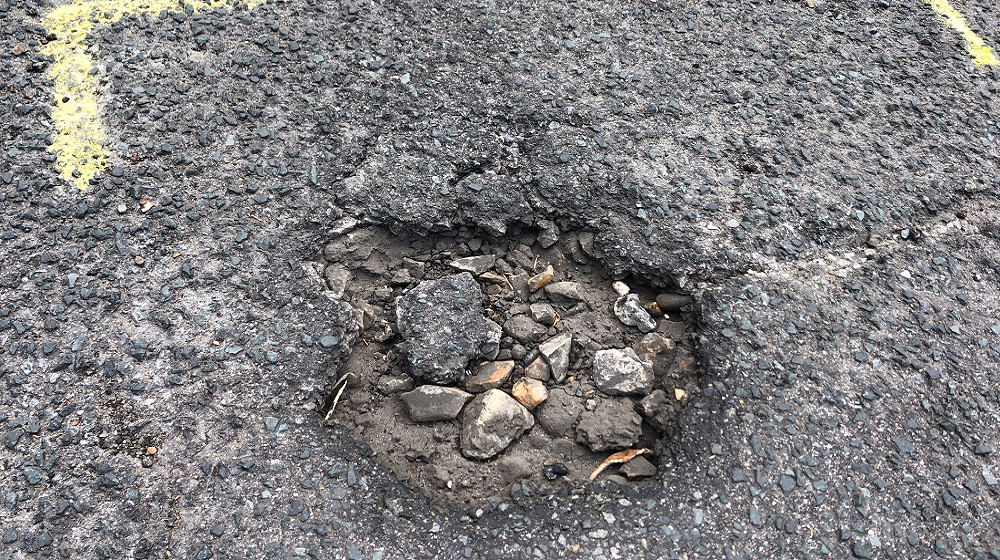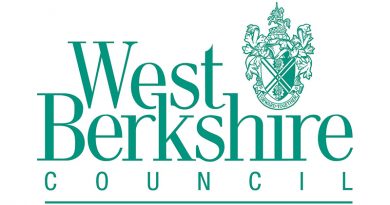West Berks Council will reduce depth of potholes fixed, as AI is used to survey roads
West Berkshire Council is reducing the depth of pot holes it will fix – which means more of them will get filled.
And it has done a deep dive into the district’s pit-ridden roads using state of the art artificial intelligence (AI) technology.
The move comes as latest figures show a five-fold increase in the number of claims from road users who have experienced damage or injury as a result of incidents involving defects on the network.
Claims have increased from 121 to to 527 – but 386 remain open.
The council claims to repudiate around 90 per cent of claims made.
In addition, the number of potholes reported on the district’s roads have sky rocketed.
In 2023 there were 3,235 carriageway-related enquiries from the public and highway inspectors have raised 2,586 defects.
Motorists reported 1,881 potholes between January and February this year – up from just 116 last year.
However, AI data is indicating that the situation is much worse – and there are severe potholes on in excess of 4,500 10m sections which have been surveyed.
These have been identified as part of the artificial intelligence processing of survey video.
While the system lacks the capability of measuring the depth of these defects, this does highlight that there are a significant number of defects which are likely to deteriorate and therefore contribute to future demand alongside what is being described as ‘diminished customer perception’.
The council has commissioned consultants to look at the state of district’s the roads – and they have recommended ‘reducing the investigatory level for highway defects from 50mm to 40mm’.
This would cost an additional £400,000 in the first year (due to the need to repair additional potholes to transition) and additional £200,000 per annum thereafter.
The report lead was Matthew Lugg OBE, director of local transport for WSP UK – described as a ‘pre-eminent expert in the field of potholes’ having led on the Government’s 2012 Pot-Hole Review.
In general, his review recognises that the road condition in West Berkshire is consistently better than the national averages in England, concluding that the road network in West Berkshire is ‘generally in good condition’.
That is despite significantly increased claims in the last 12 months reflecting national trends.
Alongside this there was a significant increase in the volume of claims related to highway defects being received by the service.
To understand a possible reason for this increase, the Highway Safety Inspection Procedure was reviewed, and it was noted that West Berkshire has a ‘less onerous’ investigatory level than their geographical neighbours.
In West Berkshire, a pothole would have to be a minimum of 50mm deep to be fixed, whereas most other authorities would have a threshold of 40mm.
“This may be contributing to a negative customer perception as road users believe that defects are severe enough to be repaired but would not be progressed as the investigatory level is not reached,” says the report.
“It should be noted that changing from 50mm to 40mm would have financial implications, however this will result in more potholes being fixed earlier and give a much more satisfactory outcome for the road user.”
The review established that the highway service, and its contractor Volker Highways, operates a consistently high standard of repair, with a process to revisit the repairs that have been temporarily repaired with permanent repairs.
However, the repair techniques should be regularly reviewed to ensure the latest innovative techniques are adopted.
The review suggest the council develops better ways of communicating to residents and road users about highway activity in the district and improves the way that the service listens and provides feedback to those who make contact.
Following the local elections in May 2023 there was a change in leadership at the council and a new Liberal Democrat administration formed.
The pre-election manifesto ‘A Fresh Start for West Berkshire’ set out a number of commitments specifically relating to the condition of West Berkshire’s roads.
During 2023 West Berkshire Council began a trial of Vaisala Road AI to conduct video surveys across the road network.
This tool can identify a range of defects in the surface of carriageways and the overall condition of the network.
The tool enables individual defects such as potholes, cracking or fretting to be identified, the presence of these defects contributes to a score for deterioration across the width of the carriageway.
The trial of the video survey is ongoing, to date 52 per cent (687km) of the network has been surveyed.




